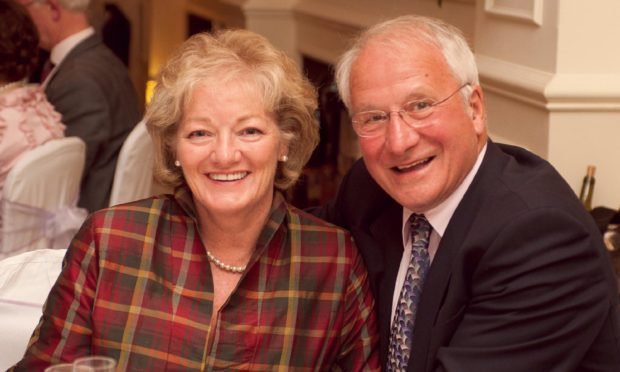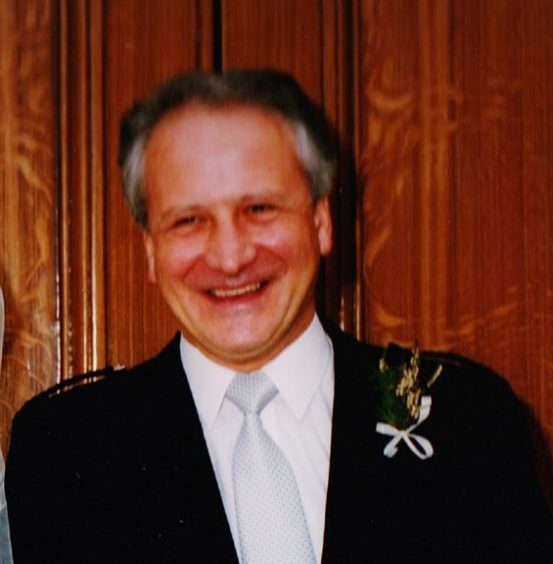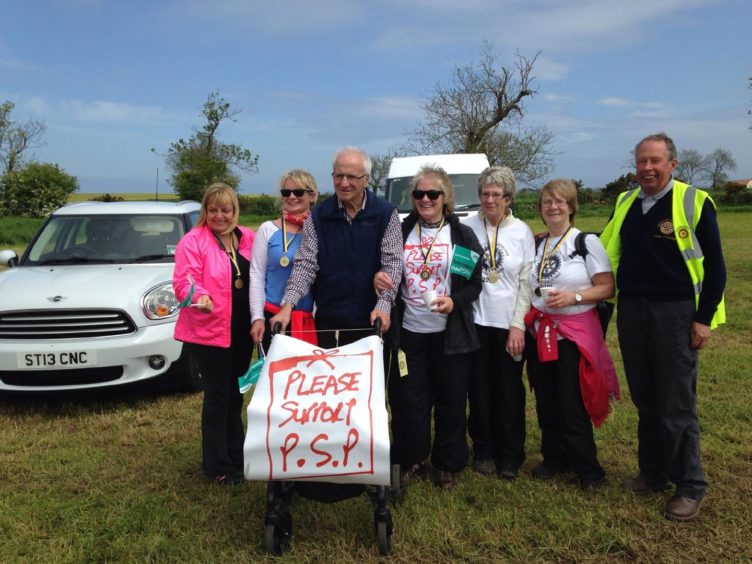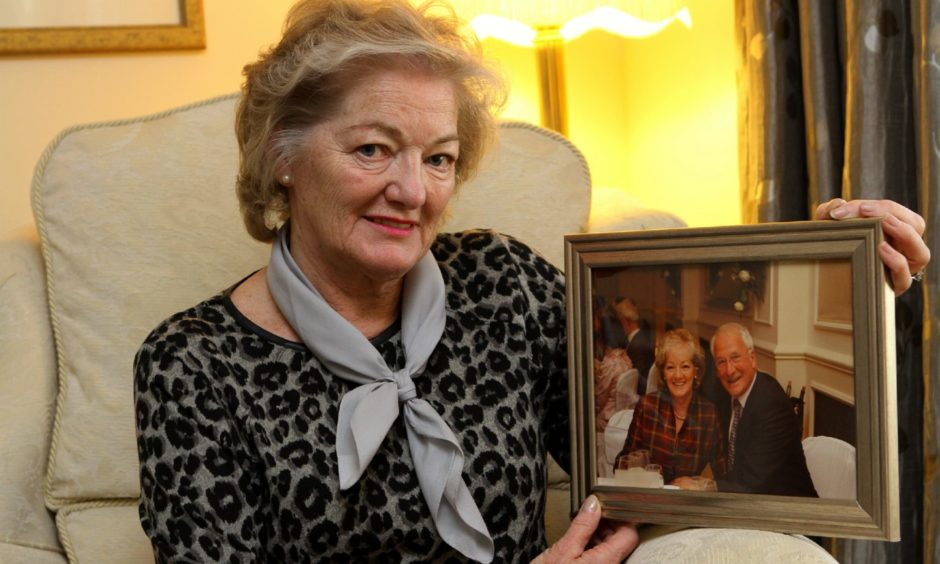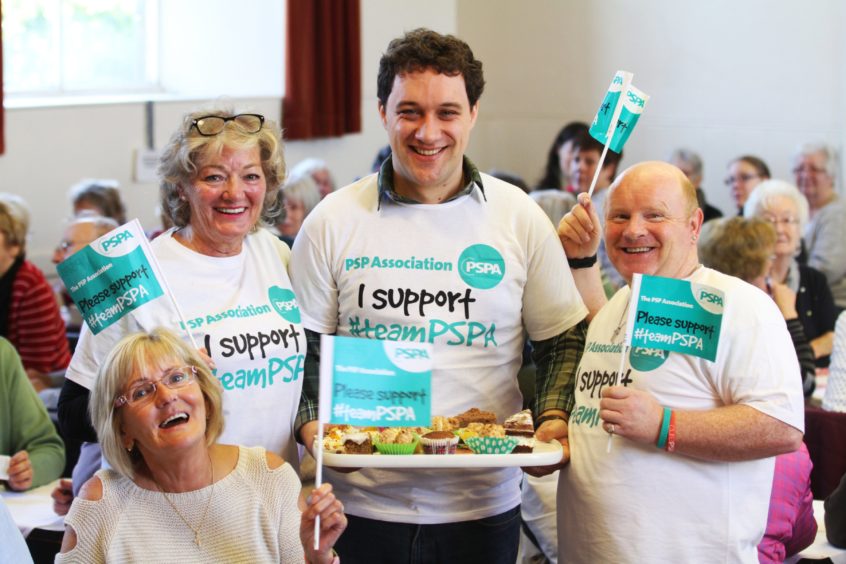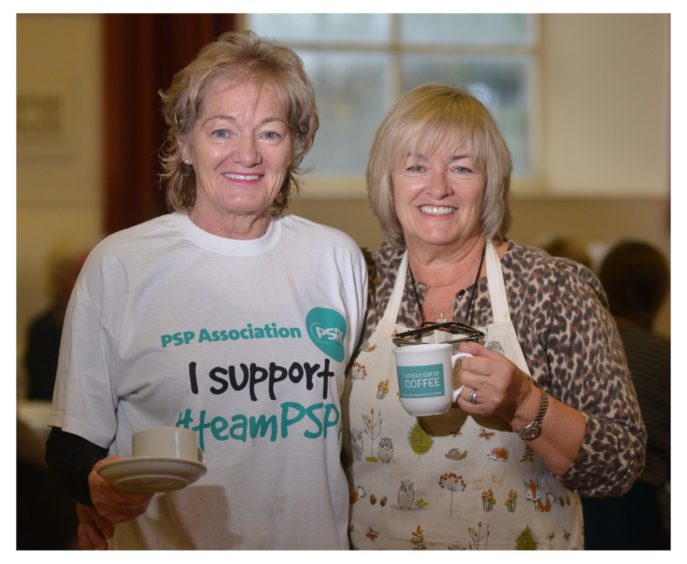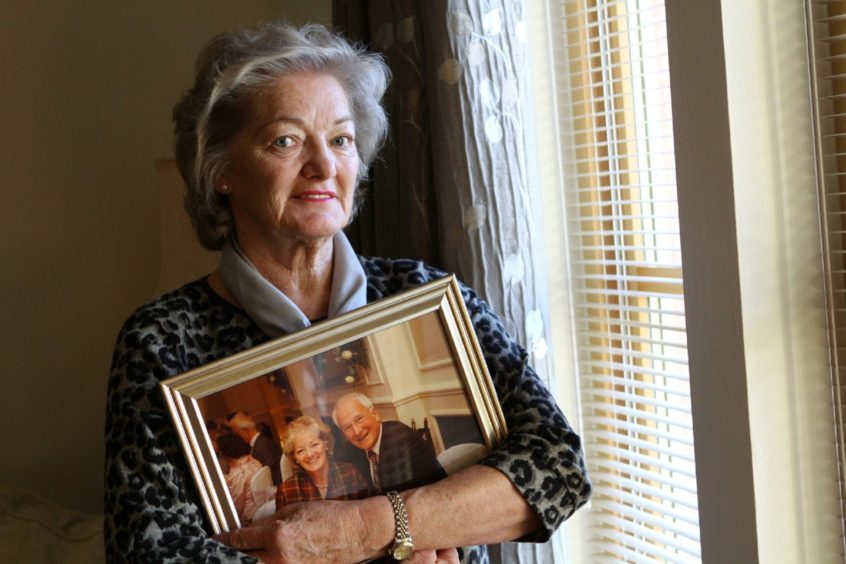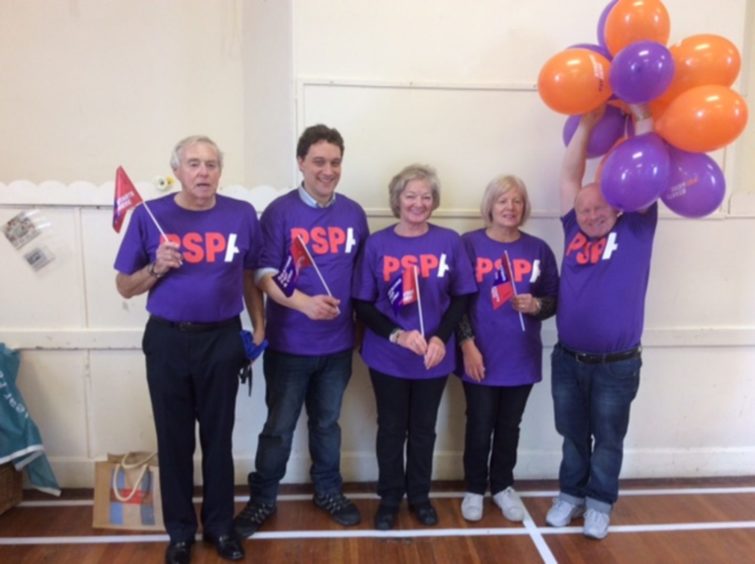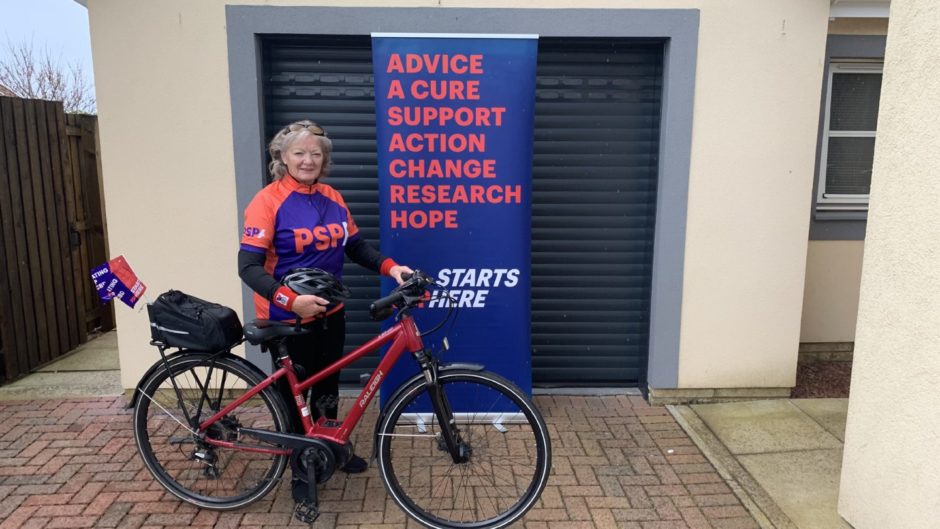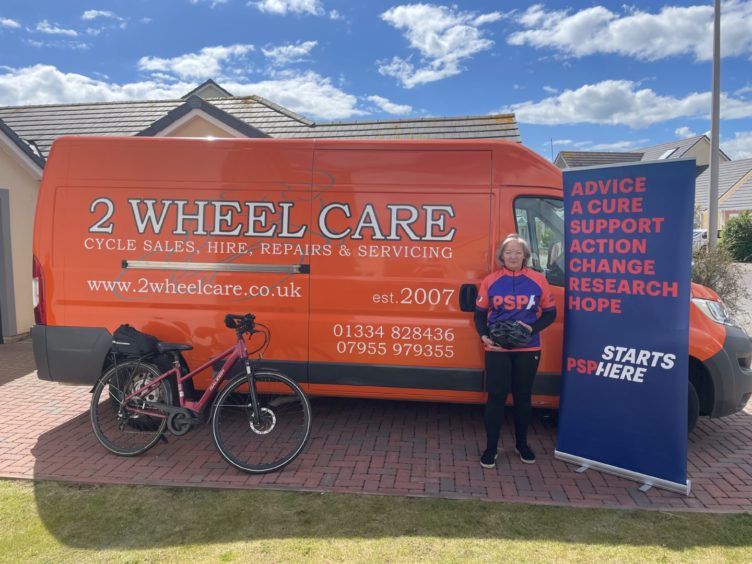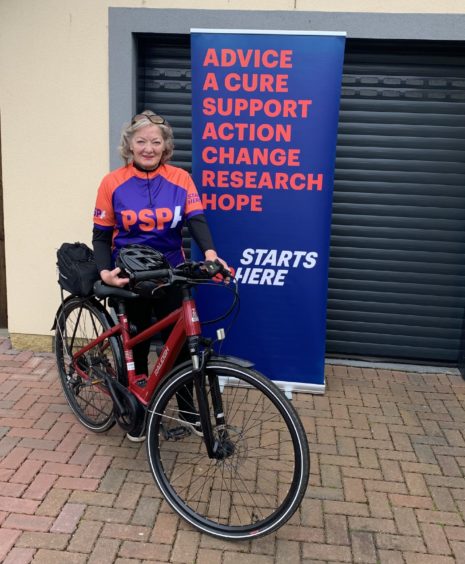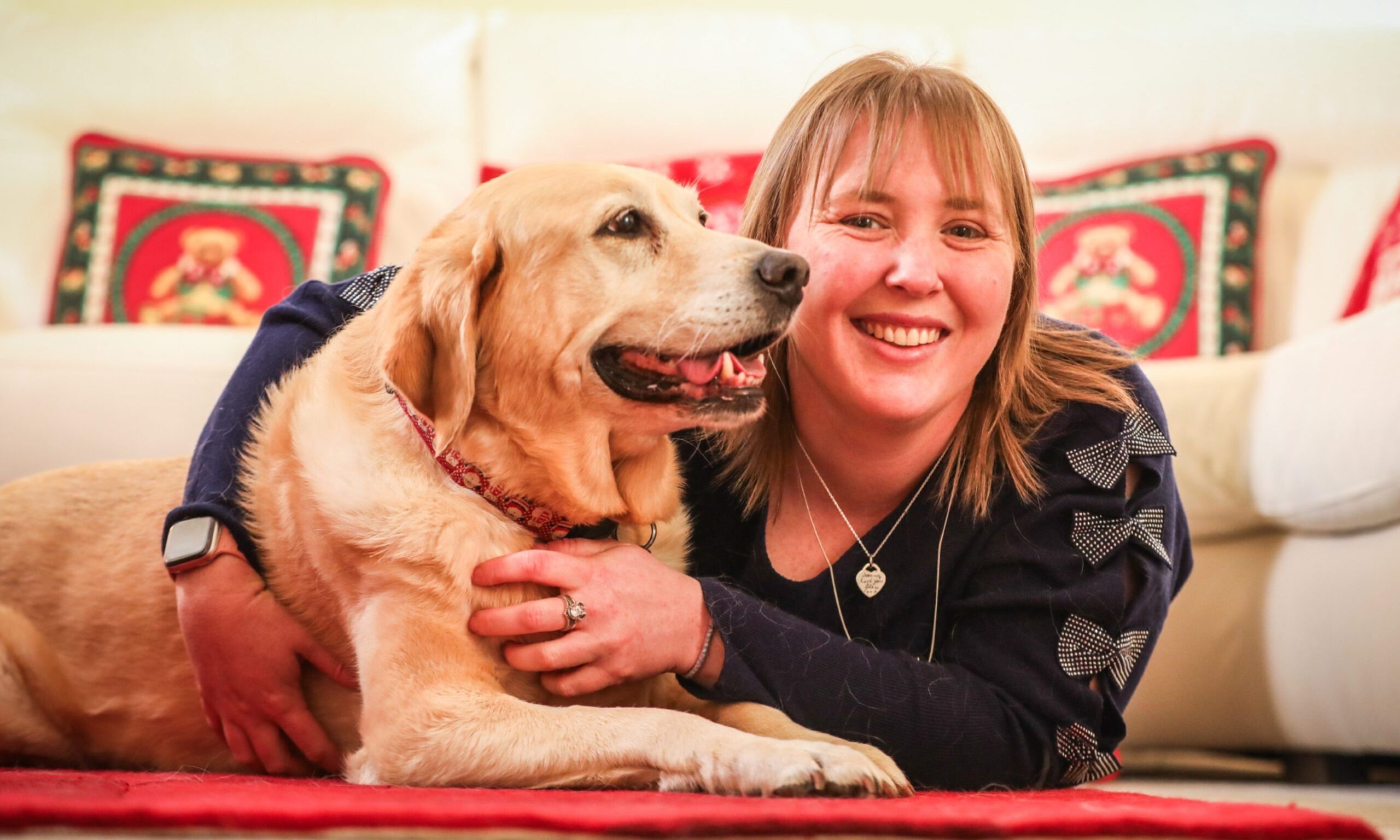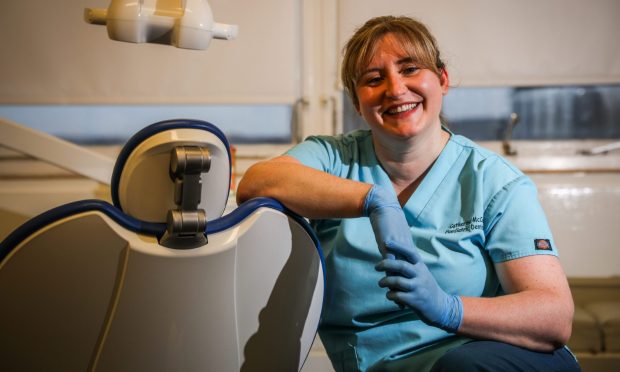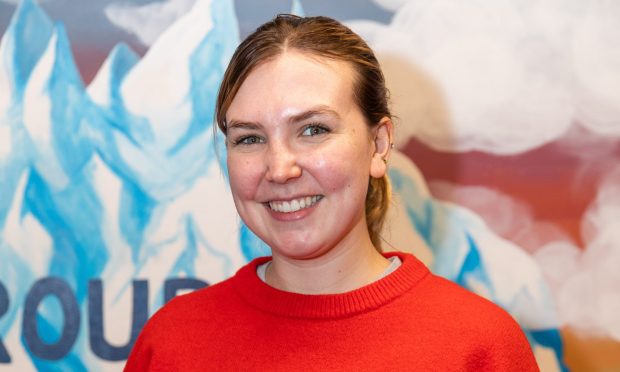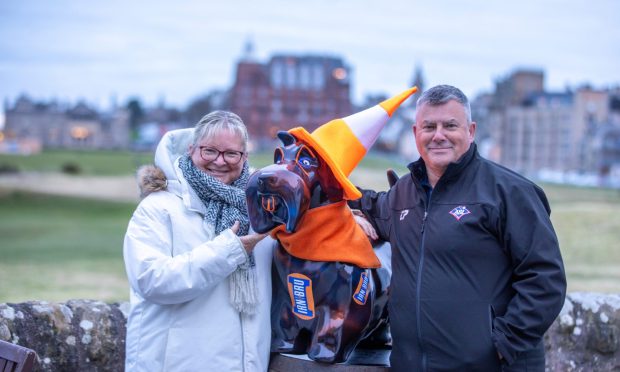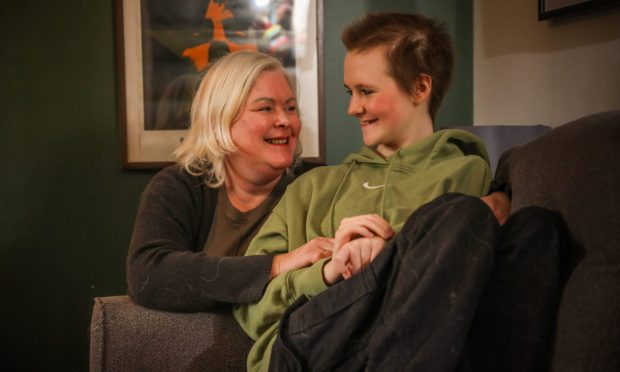Michael Alexander speaks to Fife woman Elizabeth Birrell who, following the death of her husband Ian, is continuing to fundraise and campaign for awareness of Progressive Supranuclear Palsy (PSP).
It is a little known neurological condition caused by the premature loss of nerve cells in certain parts of the brain.
But when East Neuk Progressive Supranuclear Palsy (PSP) fundraiser Elizabeth Birrell thinks back to the experiences of her husband who died from the terminal condition in 2014, it still upsets her that his PSP diagnosis was delayed.
Ian Gordon Birrell, who was diagnosed with the degenerative brain disease in 2009, was just 71 when he died at home on October 7, 2014, after becoming “locked-in” to his body.
A former president of Fife Licensed Trade Association, Ian and Elizabeth ran the Craw’s Nest Hotel in Anstruther for 33 years and he was a highly respected and honorary member of the town’s Rotary Club.
Following his diagnosis with PSP, he and Elizabeth raised around £30,000 to help other people suffering from the illness, which causes difficulty with balance, movement, vision and speech.
In the years since she has been determined to keep that legacy alive.
However, with 4000 people living with PSP in the UK at any one time, and at least six local people diagnosed since Ian’s death, she still worries that many GPs are unaware of it and misdiagnosis is taking place.
“Ian was in hospital for two weeks getting different tests and was diagnosed with Parkinsonism,” recalls Elizabeth, now 73.
“But then six weeks later he went to see the neurologist and he was told it was PSP he had.
“Our local GPs hadn’t’ heard of PSP. When you are diagnosed your GP should have a pallative care plan set up, but that wasn’t done for Ian.
“One of the doctors told me to make a monthly appointment for Ian and it would help them to see how it was affecting him.
“Well as time was getting on and Ian was getting worse, we walked into the doctors’ room and he said ‘what can I do for you today?’ My jaw could have hit the floor! Ian didn’t want to go back to see him.”
Sarah Day is Challenge Events Fundraiser with the Progressive Supranuclear Palsy Association (PSPA) – the only charity supporting people with this condition in the UK.
She says that unfortunately, even now, the Birrells’ experience of PSP misdiagnosis remains far from unique.
“Unfortunately, Elizabeth’s experience of her husband’s delayed diagnosis is not uncommon,” she says.
“In fact, research has indicated up to 50% of people living with PSP and CBD are first diagnosed with other neurological conditions such as Parkinsons’, before being re-evaluated as symptoms progress.”
What is PSP and what are the symptoms?
According to the PSPA, a protein called tau builds up in certain areas of the brain and forms into clumps (neurofibrillary tangles), which are believed to damage the nerve cells.
Over time, this can lead to difficulties with balance, movement, vision, speech, and swallowing.
There are believed to be around 4,000 people living with PSP in the UK at any one time.
There are no simple tests or brain scans for PSP.
In its early stages, symptoms can resemble those of other neurological conditions such as Parkinson’s, Alzheimer’s, stroke or Multiple System Atrophy and misdiagnosis is common.
The condition gets its name because it is progressive – it steadily worsens over time; it is supranuclear – it damages the nuclei that control eye movements; and it leads to palsy – it causes weakness.
Each case of PSP is unique and symptoms can be experienced with varying degrees of severity and at different stages of progression.
Symptoms can include difficulties in movement and balance including falls backwards. Movements may be very slow and muscles become stiff.
PSP can lead to changes in behaviour or personality. For some people, these changes may be very subtle, whilst others may notice obvious changes.
As people become increasingly immobile as PSP progresses constipation, lack of bowel control and urinary problems may develop.
Eating, drinking and swallowing difficulties are common in PSP and can occur fairly soon after diagnosis.
Coughing when eating or drinking is an indication that food or drink has ‘gone down the wrong way’ into the airway. If this occurs regularly, it can lead to chest infections or pneumonia.
People living with PSP have a reduced swallow reflex, resulting in a build-up of saliva inside the mouth. Sometimes saliva can also be thick and difficult to swallow and some medication can cause saliva to dry up, resulting in a dry mouth.
People living with PSP may experience visual problems which can’t be corrected by glasses.
The main symptoms include double vision, tunnel vision, blurred or misty vision, slow jerky eye movement and difficulty looking down.
In PSP, areas of the brain controlling the movement of the tongue, lips and throat can impact on speech – making it slurred and difficult to understand.
Many people living with PSP experience fatigue. This is an overwhelming feeling of tiredness, lack of energy and exhaustion.
Pain can be present as a direct result of PSP, or as part of any other conditions that you are experiencing.
Like many other chronic conditions, there is no cure for PSP.
The average life expectancy is around seven years from the onset.
However many of the symptoms can be managed to help people achieve the best possible quality of life.
PSP tends not to run in families and the disease is not believed to be inherited.
However, research indicates that some people may have a genetic disposition which makes them more susceptible.
Elizabeth says there’s no doubt Ian’s death left a “huge hole” in her heart.
Recuperation in East Neuk as youngster
Born and brought up in Danbury, Essex, Ian was brought to the East Neuk by his father John as a child to recuperate from an illness and returned to visit during school holidays.
As a young adult he decided to move to the area and met Elizabeth, who soon became his fiancee.
His father-in-law-to-be, Eddie Clarke, had opened the Craw’s Nest Hotel in 1965 and two years later invited Mr Birrell to join him in the business.
It was in the hotel which he ran until he retired in 2000 that he and Elizabeth celebrated their marriage in 1968.
The couple had two children, Liza and Ian, and he was also a grandfather to Scott and Julian when he passed away.
In the months and years since, Elizabeth has taken solace from her continued efforts to raise thousands of pounds in the name of PSP research.
A determination to carry on was evident when, before her husband’s death, she was planning a jazz afternoon for the charity in the Craw’s Nest Hotel.
Instead of cancelling the event pre-arranged for just two days after his funeral, the family decided to make it a celebration of his life.
Support Elizabeth’s 1000 mile charity cycle
Those efforts are continuing now with Elizabeth in the midst of a 1,000 mile cycle to raise awareness of PSP and raise funds for PSPA.
She began her marathon effort at the end of April after developing a love for cycling during the Covid-19 lockdown.
Since her husband’s death, Elizabeth has regularly taken part in her local Rotary’s coastal walks.
She has raised over £70,000 taking part in coastal walks, hosting coffee mornings and street parties, and she says she could never have done it without the generous help of friends and the local community.
She aims to complete her 1,000 miles of cycling by the end of June, cycling around 30 miles a day, when weather permits.
Elizabeth adds: “PSP is so little known. To help raise funds for PSPA and awareness of PSP, I’ve taken part in 10 sponsored coastal walks organised by my local Rotary.
“Unfortunately, the walk in 2020 was cancelled due to the pandemic, which is why, after I had grown an interest in cycling during the lockdown, I thought a cycling challenge would be a great idea.
“I hope by doing the challenge and talking about it, I can help spread the word about PSP so more people are aware of how to spot the signs and symptoms.
Sarah Day, PSPA Challenge Events Fundraiser, adds: ”Elizabeth’s passion for raising funds and awareness continue to inspire not just us at PSPA, but those in her local area and the wider PSP & CBD community too.
“We are honoured by her ongoing support which is helping to expand our reach so more people can spot the signs of PSP & CBD and aid early diagnosis.”
You can keep up to date with Elizabeth’s progress and sponsor her cycle at: www.justgiving.com/fundraising/ianbirrell2021
For further information about the PSPA go to www.pspassociation.org.uk
